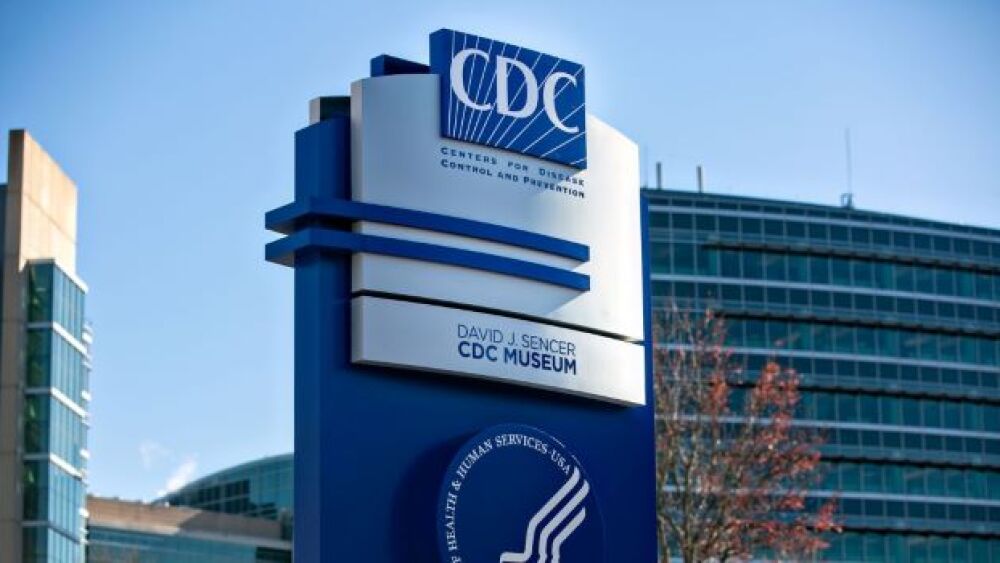In the wake of an increasingly accelerated COVID-19 vaccine rollout, the CDC has released new guidance statements that give fully vaccinated individuals more freedom to socialize and participate in pre-pandemic activities.
Jason Armond / Los Angeles Times via Getty Images
In the wake of an increasingly accelerated COVID-19 vaccine rollout, the Centers for Disease Control and Prevention (CDC) has released new guidance statements that give fully vaccinated individuals more freedom to socialize and participate in pre-pandemic activities. But the guidance comes with a catch, in addition to some criticism.
The newly-released guidelines say that people who have been fully vaccinated against the novel coronavirus may visit indoors with unvaccinated members of a household who are considered at low risk of severe disease, all without having to wear a mask and social distance.
Additionally, the guidance states that fully vaccinated people can gather indoors with people who are also fully vaccinated, all without having to quarantine or be tested for the virus if they don’t experience with symptoms of COVID-19.
The guidelines don’t say fully vaccinated people can return to life like it was in 2019 or earlier. Despite the catch, many welcome the guidelines as another step toward some resemblance of normalcy, a concept that a pandemic-weary public grapple with conceiving given the long-term mental and emotional toll the virus has exerted on the world.
But not everyone is happy with the CDC guidance. Some members of the public, in addition to political commentators and even healthcare professionals, suggest the guidance is not providing a clear enough incentive for people to get the vaccine. In particular, some suggest the messaging around mask-wearing among vaccinated people has been less than ideal.
“The sooner we move to telling people if you’re fully vaccinated you don’t have to wear masks, that will be an incentive for people to get vaccinated,” said Peter Hotez, co-director of the Texas Children’s Hospital Center for Vaccine Development, in an interview with the Washington Post.
Despite the criticism of the CDC messaging, many remain hopeful that the new guidance statements offer greater insight into what post-pandemic life will be like, at least until everyone has access to a vaccine.
“As more Americans are vaccinated, a growing body of evidence now tells us that there are some activities fully vaccinated people can do,” according to a statement made by CDC’s director Dr. Rochelle Walensky during a White House Covid-19 briefing on Monday.
The CDC said in the statement that “fully vaccinated grandparents can visit indoors with their unvaccinated healthy daughter and her healthy children without wearing masks or physical distancing, provided none of the unvaccinated family members are at risk of severe COVID-19.”
This high-risk group includes individuals over the age of 65 as well as people with underlying health issues that make them more susceptible to infection and poor post-COVID-19 outcomes.
People who have been fully vaccinated are still encouraged to wear masks in public, a recommendation that is mandated in many states in the U.S., as well as around people who are vulnerable complications associated with COVID-19. Hand washing, mask-wearing, and physical distancing guidelines in public are all encouraged in the new CDC statement, as is avoiding crowds and testing for the infection if symptoms develop.
According to a report in POLITICO, an earlier draft version of the CDC guidelines outlined travel recommendations for fully vaccinated people, but health officials at the agency decided against releasing this portion until further data are available.
As of Tuesday, the CDC’s vaccine tracker has recorded that more than 90 million doses of authorized COVID-19 vaccines have been administered in the U.S. This number breaks down to 60 million Americans who have received at least one dose of a two-dose regimen, while more than 30 million people have received the full two doses. Overall, about 10% of the population in the U.S. is fully vaccinated, according to the numbers.
Vaccines used across the U.S. against the novel coronavirus include those developed by Moderna and Pfizer-BioNTech. The Biden administration hopes to have enough vaccines available for every person in the U.S. by the end of May 2021.





